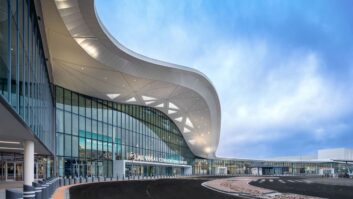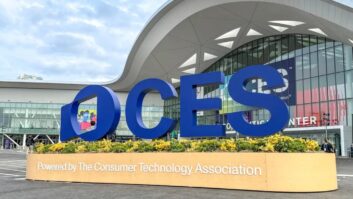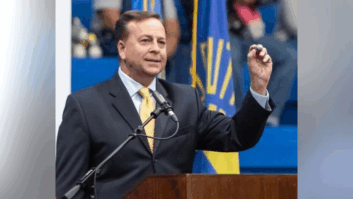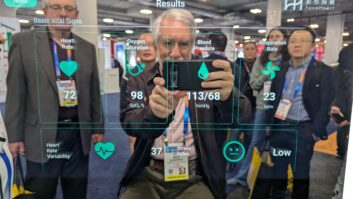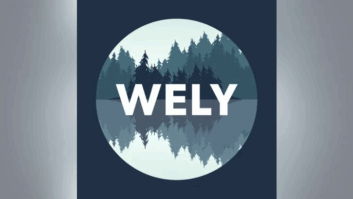The North Carolina Association of Broadcasters has honored Carl W. Davis Jr. with the 2018 NCAB Hall of Fame Award.
Davis is a certified Professional Broadcast Engineer with a background in both radio and television and who also worked in sales for several broadcast equipment manufacturers; today, he is a regional sales manager for Electronics Research Inc.
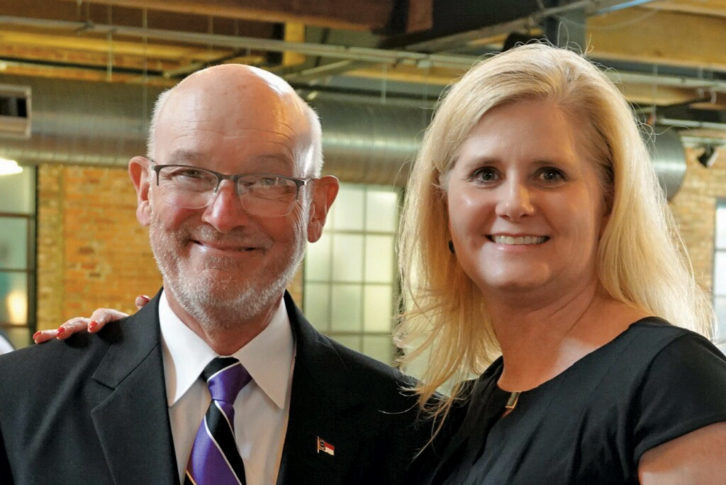
“The best thing about [broadcast] technology is that it allows us to educate, inform and entertain our citizens,” he was quoted saying in the award announcement.
“While the symphony or the ballet can’t come to every town in North Carolina, UNC(TV) can bring the symphony and ballet into every home. We can connect the people of our state.”
Davis grew up in Hickory, N.C., where got his start in radio at WIRC and WXRC. He then went on to study sociology at East Carolina University in Greenville, N.C., where he also worked at campus radio station WECU(AM). As a senior, Davis began to work for Greenville’s WOOW(AM); he was chief engineer and program director.
Several years later, he tackled a new job as president and owner of Fisher and Davis Electronics Inc. From 1976–1980, he worked as WCTI(TV) transmitter supervisor for Malrite Broadcasting Co.
For his next gig, Davis was tapped as director of engineering for Durham Life Broadcasting, where he directed the technical operations of four radio stations, one NBC affiliate TV station, two regional sports networks, one national farm network and a statewide satellite news/information network, according to his résumé.
In 1985, he was named vice president of engineering for Voyager Communications Group, overseeing 11 radio stations in four states. He went on to work in broadcast TV equipment sales beginning in 1994, first as district sales manager for Harris Corp.
He returned to the engineering world in 1998. Davis was hired by University of North Carolina Center for Public Television to modernize a network that had signed on in 1955. He worked for the network as assistant general manager for 14 years before returning to Greenville.
We asked him about the award and his career.
Radio World: You’ve been vocal about the need for organizations to recognize engineers. You’re the first engineer so honored by the North Carolina Association of Broadcasters.
Carl Davis: I was really surprised by the award from the NCAB. Initially, I was just speechless, and for me that’s not a common occurrence. Yes, I am the first broadcast engineer in the group of more than 100 members, with talented people like Edward R. Murrow, Andy Griffith, Charles Kuralt and David Brinkley and great owners like Jim Goodmon, Don Curtis, Henry Hinton and George Beasley. Unfortunately, engineers are the forgotten part of the broadcast operation. They only know your name when the station is off the air.
RW: The award announcement mentioned that your mother asked you to stay away from your college radio station. Is that true? How did she feel about you making radio your career?
Davis: In high school, I was working full time at the local radio station. My mother thought I was spending too much time with radio and not enough with school. She was probably right!
Also, she wanted me to be a doctor. In that era, she couldn’t see how someone could make a living working in radio. During the recession of 2008, I’m sure some others shared her feelings. She finally accepted it.
RW: What advice do you have for young radio or TV enthusiasts who are considering a career as a broadcast engineer or are just starting out in the business?
Davis: Young people starting out need to find a mentor. They are out there. The best advice I ever got was at WIRC in Hickory, N.C. The assistant GM told me to learn as much as I could about every job in the station. I did that, and it has served me well. Also, you need to have some balance in your career. Don’t work so much that you burn out quickly.
RW: What was the most interesting project you’ve worked on so far in your career?
Davis: That’s a hard question. The most complex had to be the digital conversion at UNC-TV because of the number of different pieces. Fortunately, the voters of North Carolina gave us the funding in a higher education bond. That was leveraged with grants and other funds to over $70 million. We built towers and installed antennas, line and transmitters. We built switching, storage, automation, and both studio and remote production facilities.
In the end, we had 12 digital full-power TV stations, 1,100 miles of digital microwave, 25 digital translators and an outstanding production and broadcast facility. All of it had redundancy. We reached 13.6 million people with multiple channels of service.
RW: You’ve worked in both radio and TV. If you had to play favorites, which medium would you choose?
Davis: I have been asked that question many times over the years. I’m worked in both and sold to both radio and television stations, so I should have an answer; I don’t.
Technically, they are same. An antenna or transmission line doesn’t care if it’s carrying FM or TV RF. A computer hard drive doesn’t care it’s storing audio or video or both. The only difference is the people in the stations. I have been fortunate to work with some of the finest radio and television professionals in the country. I can’t choose!
RW: You now are a regional sales manager for ERI. How has your engineering background informed your work in sales?
Davis: Having been a broadcast engineer has been a huge help during my sales career. I understand the issues facing the broadcast engineer. I can relate to them better than someone who has never been on that side. I know the questions that they are getting from their boss and try to help them help their stations. I try to ask the right questions and put myself in their situation.
When people outside the industry ask me if I like my job, my answer is that I am selling to people I genuinely like and people I would like to have as my next-door neighbor.
RW: What do you think is the most pressing issue facing broadcast engineers today?
Davis: Too few people are choosing broadcast engineering. Some of the most successful younger engineers in the last few years have come not from school but from other parts of the station, like promotion or programming.
Just this week, a very good contract engineer described a young engineer working on a complex project. The young engineer asked him how he knew why something worked the way it did. The answer was “I just know from experience.” There is no substitute. Station owners and managers see this as a problem, but not as much of a problem as it really has become. Almost every day someone asks if I know of an engineer for this market or that market. In the current job market, stations are going to have to pay more and offer better benefits. It’s a fact of life.
RW: Is there life outside of broadcasting?
Davis: Yes, I’ve been very involved for a long time with my alma mater, East Carolina University. I’ve served as chairman of the ECU Board of Visitors and chairman the ECU Alumni Association. My wife and I attend dozens of ECU sporting and other events every year. We don’t have children but feel like we have 30,000 ECU students in our family. Higher education, including the campus radio station, had a huge impact on my life. We are doing what we can to help our university have that impact on another generation of students.
